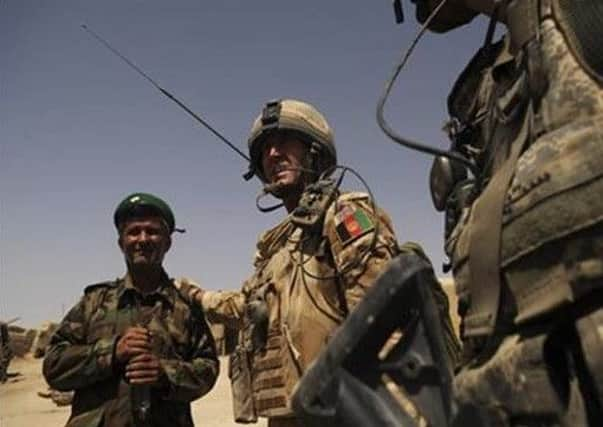War veteran Beattie hails move to end '˜vexatious' pursuit of soldiers


Prime Minister Theresa May announced yesterday that the UK is opting out of parts of human rights law for soldiers fighting in conflicts overseas.
Mrs May said the move should end an “industry of vexatious claims” which has seen veterans of Iraq and Afghanistan pursued over alleged mistreatment of combatants and prisoners over a decade after the supposed events took place.
Advertisement
Hide AdAdvertisement
Hide AdUUP MLA Doug Beattie, who had been posted to Kosovo, Iraq, Afghanistan, Northern Ireland and Africa in a military career dating back to when he was 16 years old, said British forces already follow the Geneva Convention and the Law of Armed Conflict.
He hit out at “ambulance-chasing lawyers” and a “cottage industry” of solicitors taking retrospective actions against UK soldiers.
Mr Beattie said: “I have taken life in my military career.
“I don’t say that because I am proud – that is something for me to live with.
“I bayoneted a man to death in the heat of battle and I was confident that my actions were justifiable under the rules of engagement and in the Geneva Convention.
Advertisement
Hide AdAdvertisement
Hide Ad“Soldiers in battle are already governed by the Geneva Convention, the Law of Armed Conflict, civil and military law, the Rules of Engagement, etc.
“No soldier can act with impunity. There are rules that govern his behaviour in any conflict.
“If I am on the battlefield, faced with an enemy who is trying to kill me, and instead I kill him, because of the European Convention on Human Rights (ECHR) I have taken away his right to life and his family may decide to pursue a case against me.
“If I am engaged in a fight and I have prisoners with me and I decide to bind them and put a hood over their heads so I can engage the enemy, when I release those prisoners and transfer them to be processed as political prisoners – which seems perfectly reasonable to me – the ECHR would be able to charge me for that.
Advertisement
Hide AdAdvertisement
Hide Ad“The ECHR is not needed because the protections are already there through the Geneva Convention.
“The problem is with ambulance-chasing lawyers. A whole cottage industry has developed out of these lawyers and they have discredited something that was a good thing to begin with.
“It doesn’t matter when you are faced with a brutal enemy who has no regard for human rights.
“It does play on your mind to a certain extent, but it doesn’t matter whether the enemy is someone you see as sub-human because of what they do – as soldiers our behaviour on the battlefield must follow certain standards.
Advertisement
Hide AdAdvertisement
Hide Ad“There are people who have broken the law, for instance the Marine who killed a political prisoner who has been sentenced to prison, and they are already subject to the law.”
He added: “There is no need for the impractical ECHR to be applied to soldiers as well.”
PM’s conference announcement:
Under changes outlined at the Conservative Party conference in Birmingham, the Government will adopt a presumption that it will take advantage of a right to suspend aspects of the European Convention on Human Rights at times of war.
Describing herself as “not the biggest fan of the EHCR”, Prime Minister Theresa May said the move would reduce the burden on taxpayers, which has seen the Ministry of Defence spend more than £100 million on Iraq-related investigations, inquiries and compensation since 2004. “What we’ve seen in recent times is human rights legislation being used to generate all these vexatious claims,” said Ms May. The 1953 European Convention on Human Rights permits signatories to suspend their obligation to certain human rights responsibilities in wartime.